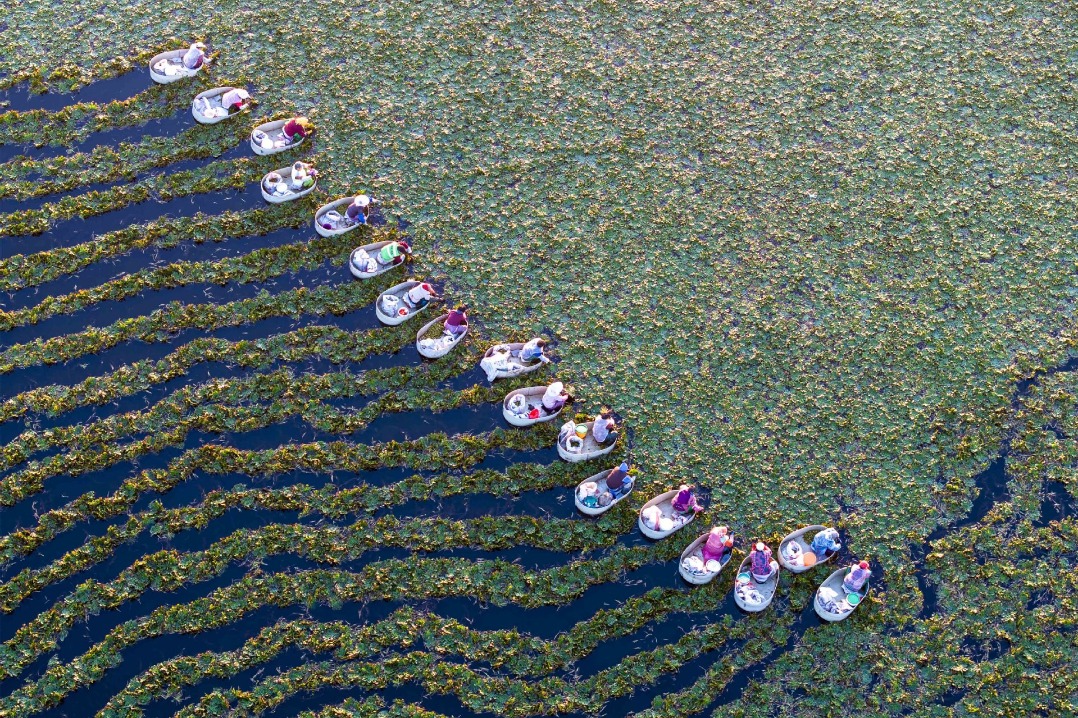Things to know about all the lies on Xinjiang: How have they come about?


V. When the slanderous claims against China were ready for use, instead of verifying their veracity, some Western media outlets rushed to hype them up. To create fake news, the BBC even went so far as to pay for "evidence".
◆Barrie VVeiss, a former British media professional, revealed in detail on social media the entire process of Western media concocting fake news about Xinjiang. He pinpointed an important source of the fake news to be the anti-China activist Adrian Zenz. Zenz, who had initially rejected the BBC invitation to look for "evidence" against China, changed his mind after receiving a commission from the BBC.
◆In July 2019, Zenz tweeted: The BBC commissioned my research. They asked the first time whether it could be done. I said "no", too hard, too little evidence. They asked again. I said: "let me see what I can find". Well, the resulting findings now total 17,000 words and 163 footnotes.
◆After Zenz published his so-called "The Karakax List: Dissecting the Anatomy of Beijing's Internment Drive in Xinjiang", Western media outlets such as CNN, BBC, The New York Times, The Wall Street Journal and Deutsche Welle rushed to cite the so-called "conclusions", without any investigation or verification, to badmouth and spread lies about Xinjiang's counter-terrorism and de-radicalization measures. Some even tagged their coverage as "exclusive" to steal public attention. However, when China released documentaries on fighting terrorism in Xinjiang, these same media outlets all went into silent mode and turned a blind eye.
◆On 10 February 2021, at the fourth Press Conference on Xinjiang-related Issues co-hosted by the Ministry of Foreign Affairs and the Xinjiang Uyghur Autonomous Region, Xu Guixiang, Deputy Director General of the Publicity Department of the CPC Committee of the Xinjiang Uyghur Autonomous Region, commented on BBC's habitual practice of fabricating stories and creating troubles on Xinjiang-related issues. "I had taken an interview by BBC in Xinjiang myself," said Xu. "We showed our greatest sincerity by making the best possible arrangements for their visit. We were open and candid in our conversation, and met all their interview requests. The coverage they produced later, however, completely distorted the facts," Xu added. "Not long ago, the journalists from BBC took videos of the local residents in Aksu Prefecture without their consent. And without interviewing even one Uyghur, they claimed to have obtained solid evidence of ‘massive forced labor' in Xinjiang. What they had was nothing but a few non-live-action satellite images and the so-called reports churned out by anti-China elements. They even publicly pressed foreign companies that have invested and built factories in Xinjiang to pull out their investment." "Such moves trampled the ethics of journalism, deviated from the principles of objectivity, impartiality and fairness, and ran counter to facts. They have fully exposed BBC's vicious intention of spreading lies and rumors against Xinjiang to serve political purpose, and ruined its reputation as a well-known international media outlet."
◆On 6 August 2020, "China Uighurs: A model's video gives a rare glimpse inside internment", a news report edited by BBC Beijing correspondent John Sudworth based on a video clip shot by a drug dealer and several text messages, alluded that the Chinese government held large numbers of Uyghurs in detention camps and put them under torture and abuse. Merdan Ghappar, the man appearing in the video, is a criminal arrested and convicted in accordance with the law for drug trafficking. According to Chinese laws and regulations, it is a normal procedure for him to return to his place of origin and report to local authorities after being released from prison. However, Sudworth purposefully misinterpreted it as the government's attempt to send Ghappar into the internment camp. As in other Sudworth-made stories, the report is filled with disinformation such as separation of families in Xinjiang, forced sterilization of Uyghur women, and millions of Uyghurs and ethnic minorities held in internment camps. Citing unverified document urging for repentance and surrender, text messages from Ghappar and radical views of the criminal's exiling uncle Abdulhakim Ghappar, pseudo-scholar Adrian Zenz and anti-China elements such as James A. Millward, this ideologically biased report made groundless accusations against China's ethnic and religious policies.
◆On 12 January 2021, The New York Times published Amelia Pang's article "It Took a Genocide for Me to Remember My Uighur Roots" in its Opinion section. Using her 1/8 Uyghur origin, Pang portrayed herself and her family as victims of the so-called "genocide" by the Chinese government. The truth is, Pang has never been to China, yet she claimed that "China's pressured assimilation insurance policies nonetheless reached me". During her five years of service at The Epoch Times, the mouthpiece of the Falun Gong cult, Pang published at least 17 articles to promote the cult organization and fabricated a large number of exaggerated and unfounded anti-China reports. In October 2020, The New York Times published an article on the true face of The Epoch Times, calling it "a force in right-wing media", "pushing dangerous conspiracy theories" and "feed[ing] the online fever swamps of the far right". Yet only a few months later, the newspaper took a totally different position, which puts its professionalism, authenticity and motives in serious question.
◆At the webinar "Genocide in Xinjiang? — A Discovery Zoom Panel", Daniel Dumbrill, a famous Canadian YouTuber, pointed to the inconsistent statements given by a "genocide survivor" widely-reported on CNN and BBC in different interviews. It was also found that the Chinese government renewed her passport when she claimed to be under arrest. The date of renewal is the only pixelated information on her passport that appeared in the CNN footage.
























